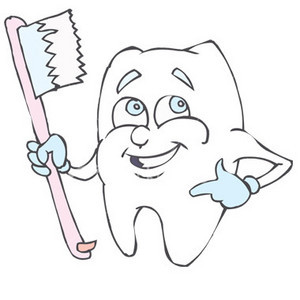This is a guest post from my friend (and huge DMS supporter) Christian Losciale, staff writer for Smart Military Money, a personal finance site dedicated to educating veterans, service members and their spouses. Follow Christian and his work on Google+.
 The bill hurt more than the surgery.
The bill hurt more than the surgery.
After not going to the dentist for about 20 months and seldom flossing during that time, I paid the price. Between several teeth I had deep crevices, as deep as 6 millimeters. The dental hygienist warned me that 5 millimeters is too deep. In short, I was going to need a deep clean, which was a lot like non-invasive surgery.
Without insurance, I would have paid $1,256. MetLife helped me out and I paid $727 for the procedure that left my mouth numb for the better half of a day. The hit to my emergency fund taught me a few lessons.
I should floss every day. Floss is an inexpensive alternative to two-hour visits to the dentist. For a few bucks you can buy plenty of floss for a few months’ time. Flossing only takes a couple of minutes each night. Do it.
My dental insurance helped. Not only did cover some of the costs for my deep clean, the price of my wisdom teeth removal was cut in half. I paid $260 to get all four of my teeth pulled instead of $520.
Always pad your emergency fund. The operations weren’t paid for completely by emergency fund. Since it was my first dentist visit in almost two years, I expected it to be bad, but not that bad. I had $500 ready. The emergency fund did the rest without being emptied. Every time you get paid, put some money in your emergency fund. Get it ready for six months of expenses.
Flossing is like saving for retirement. You can floss now and prevent dental problems down the line, just like you can save money now and be ready for retirement. Not taking action now means battling gingivitis or having insufficient income later, respectively.
All this I learned the hard way: on my back, staring at a bright light with hands in my mouth. It’s not the most comfortable position in which to have financial epiphanies. But like I said, the surgery wasn’t as bad as the cost.
Jana’s note: Going to the dentist is one of those things that many people just put off, claiming that they don’t have time or it’s too expensive or uncomfortable or any number of excuses. But dental health is just as important as taking care of your physical health. Because, in addition to the financial reasons Christian discussed, you don’t want a toothache or an impacted tooth to land you in the emergency room. Then you’re stuck with that bill as well as all of the other problems.
Other cost saving ways to protect your teeth and avoid huge bills or unnecessary dental expenses:
- Watch your sugar intake. Good for your teeth, waistline, and overall health.
- Watch your coffee and tea intake. Yes, there are at home remedies for de-yellowing your teeth but really, who wants to do that? And those whitening strips are expensive.
- If you have dental insurance, review what your policy covers. For instance, my insurance covers bi-annual exams and one set of x-rays per person but there are certain x-rays that are not fully covered. They’re for my daughter so we need to make sure that we have that money set aside. Same for orthodontia, co-pays for dental visits, fillings, etc. It’s crucial that you know what your policy does and doesn’t cover so you’re not surprised with the bill.
Readers, what suggestions or advice do you have for avoiding huge bills at the dentist?



